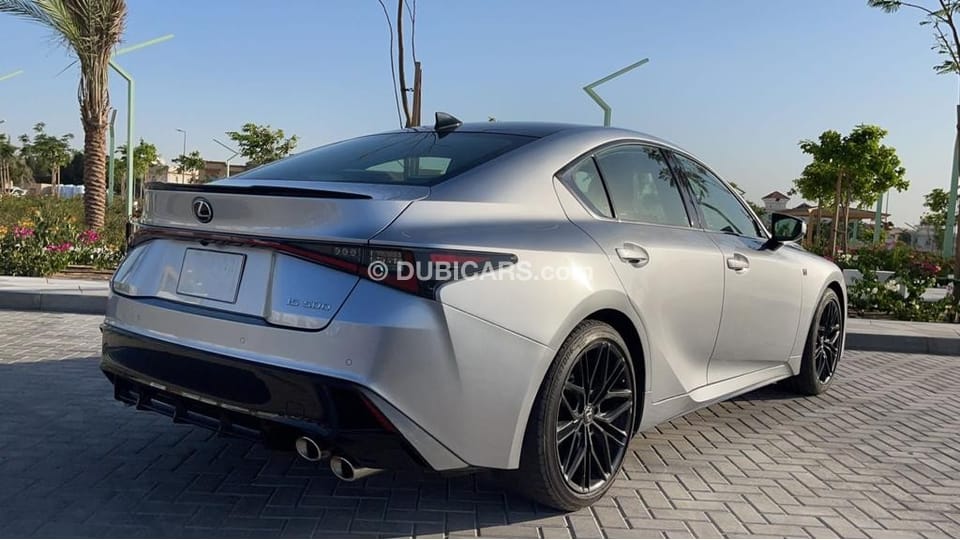Used Lexus Is500 For Sale – In this sense, online second-hand markets have not only made pre-owned goods more accessible but have also made them more desirable, offering an alternative to the mass-produced, one-size-fits-all nature of new products. The idea that everything is for sale works to perpetuate inequality, as those with the most resources can continue to amass power and wealth, while others are left to scramble for what little they can get. For those considering buying a business, the appeal often lies in the opportunity to take over an existing operation and build upon its foundation. Influencers sell their attention, their opinions, their lives — all of it has become a form of commerce. This practice is an essential aspect of sustainability, as it helps conserve resources and reduces the amount of waste sent to landfills. When consumers buy these goods, they are investing in both the product and the people behind it. The decision to sell an heirloom piece of furniture, for example, can be emotionally complex, as it involves a shift in one’s connection to the past. This desire for items with character and a story behind them has contributed to the growing appeal of second-hand goods. The growing appeal of second-hand goods is also tied to a growing awareness of environmental issues. These acts of generosity remind us that there are still things in life that cannot be bought, cannot be sold, and cannot be quantified. In conclusion, second-hand goods for sale represent more than just a financial transaction; they embody a shift toward sustainability, individuality, and social responsibility. Many factors can influence the negotiation, such as the business’s financial performance, industry trends, and the level of interest from other buyers. To mitigate this risk, buyers should ask for detailed photos, read product descriptions carefully, and inquire about the condition of the item before making a purchase. Acquiring an established business can provide a head start in terms of customer relationships, operational systems, and brand recognition. Upcycling is a great way to make the most out of second-hand goods, adding both value and meaning to the items that are being repurposed. A car might be sold because it no longer serves the needs of its owner, or perhaps the owner is simply ready for a change. It’s about change, opportunity, and the negotiation of value. What was once limited to boutique shops or high-end department stores can now be purchased from the comfort of one’s home. There are communities that exist outside the realm of traditional commerce, where sharing, collaboration, and mutual support take precedence over profit. In some cases, sellers may be willing to offer financing options, where they agree to receive payment over time, which can make the business more attractive to potential buyers.

Used Lexus For Sale
200+ locations nationwidecar payment calculatorenjoy solo test drives

2022 Lexus IS500 Premium With 742 Miles ClubLexus Lexus Forum
200+ locations nationwidecar payment calculatorenjoy solo test drives

Used Lexus IS 500 for Sale Orlando
200+ locations nationwidecar payment calculatorenjoy solo test drives

Used 2023 Lexus IS 500 F Sport Performance Premium iLusso Miami Stock
200+ locations nationwidecar payment calculatorenjoy solo test drives

2022 Lexus IS500 Premium With 742 Miles ClubLexus Lexus Forum
200+ locations nationwidecar payment calculatorenjoy solo test drives

Used 2022 Lexus IS 500 for Sale Near Me
200+ locations nationwidecar payment calculatorenjoy solo test drives

2022 Lexus IS500 Premium With 742 Miles ClubLexus Lexus Forum
200+ locations nationwidecar payment calculatorenjoy solo test drives

Used 2022 Lexus IS500 F Sport Performance for Sale in Winnipeg
200+ locations nationwidecar payment calculatorenjoy solo test drives

2022 Lexus IS500 Premium With 742 Miles ClubLexus Lexus Forum
200+ locations nationwidecar payment calculatorenjoy solo test drives

Used Lexus IS 500 Lexus IS500 2022 for sale in Sharjah 619527
200+ locations nationwidecar payment calculatorenjoy solo test drives
When an item is marked as “for sale,” it enters a space where value is defined not only by the object itself but by the context in which it’s placed. Success after the acquisition depends on a variety of factors, such as effective leadership, market conditions, and the buyer’s ability to make improvements and capitalize on growth opportunities. This can manifest in the context of career, relationships, or personal goals. Are there things that should be kept beyond the realm of trade? Or has the marketplace — with its insatiable demand and promise of exchange — seeped into every facet of our being?
If everything is for sale, then the concept of value itself becomes fluid, subjective, and often manipulated. For instance, businesses in industries such as technology, renewable energy, or e-commerce may attract more buyers due to their perceived growth potential. But in reality, even the most profound relationships can be commodified in some way. The appeal of finding a hidden gem, something that has been cherished by someone else and is now available for a new owner, is a part of the allure of second-hand goods. There is also a growing trend of upcycling and repurposing second-hand goods, where items that may no longer serve their original purpose are transformed into something new and useful. Similarly, a quality suit made from fine wool will age gracefully, developing a patina that speaks to its craftsmanship. For when everything is for sale, it’s easy to forget that the most important things in life are not commodities; they are experiences, relationships, and moments of connection that cannot be measured in dollars and cents. For the seller, the goal is often to maximize the value of the business, while for the buyer, the focus is on ensuring that the investment is sound and that the business can continue to thrive under new ownership. In this world, emotions can feel like products, available to be consumed at will and disposed of when they no longer serve a purpose. They are intended to last for a limited amount of time, after which they become outdated, broken, or no longer functional. For those on the outside looking in, the idea of acquiring an existing business might seem both enticing and overwhelming. If the buyer is satisfied with the findings, the next step is usually negotiation. Due diligence is a crucial part of the process, where the buyer investigates the business thoroughly to ensure that there are no hidden liabilities, potential risks, or operational inefficiencies. But is this a reflection of reality? Or is it an illusion we’ve created, an idea we’ve accepted in order to make sense of a world that increasingly revolves around consumption and profit?
At the core of this idea lies the assumption that everything, no matter how unique or rare, can be exchanged. Similarly, during periods of economic growth, there may be a greater willingness to spend on luxury second-hand items, such as high-end fashion or collectible items. Buying second-hand goods has numerous advantages. Many second-hand clothing stores and online platforms specialize in curating high-quality, gently used apparel, making it easy for consumers to find fashionable items that align with their tastes.
The due diligence process helps the buyer understand the risks involved, the company’s market potential, and any legal or operational hurdles that may exist. For the seller, the goal is often to maximize the value of the business, while for the buyer, the focus is on ensuring that the investment is sound and that the business can continue to thrive under new ownership. The act of selling a home is a deeply emotional process, and when it’s completed, there’s a sense of closure and anticipation for what comes next. These acts of generosity remind us that there are still things in life that cannot be bought, cannot be sold, and cannot be quantified. The materials used, whether it’s hardwood, durable fabrics, or premium upholstery, are chosen for their longevity and aesthetic appeal. In this sense, online second-hand markets have not only made pre-owned goods more accessible but have also made them more desirable, offering an alternative to the mass-produced, one-size-fits-all nature of new products. When we begin to view everything through the lens of commerce, it’s easy to lose sight of the things that make life worth living — the moments that aren’t for sale, the experiences that can’t be bought. Vintage items, antiques, and pre-loved goods often carry stories and histories that new products simply cannot replicate. They can assist in determining the right price for the business, marketing it to potential buyers, and managing the negotiation process. It’s a moment of transition, and as with all transitions, it brings with it both excitement and uncertainty. The world may increasingly operate under the assumption that everything is for sale, but the human spirit, with its capacity for love, creativity, and compassion, refuses to be bought. Additionally, purchasing second-hand electronics can be a way to access high-end models at a lower price. They are investments, not just purchases, and their value is often felt long after the original transaction has ended. For sellers, the market for second-hand goods offers an opportunity to declutter their homes and make some extra money. And, in a way, this is the ultimate form of freedom: the ability to buy, sell, and trade on your own terms. Art, music, literature — these expressions of human creativity and emotion are not always bound by the rules of commerce. By purchasing second-hand items, consumers can help reduce the demand for new products, thereby lessening the environmental impact associated with manufacturing and shipping. Second-hand markets also promote the idea of a circular economy, an economic system that focuses on reducing waste and reusing products. We are all participants in a vast, interconnected economy, one that doesn’t just involve physical goods but extends to ideas, relationships, and even identities. Whether it’s a rare collectible, a discontinued item, or a vintage piece of clothing, online platforms offer a global marketplace where buyers and sellers can connect over products that may not be easily found elsewhere.